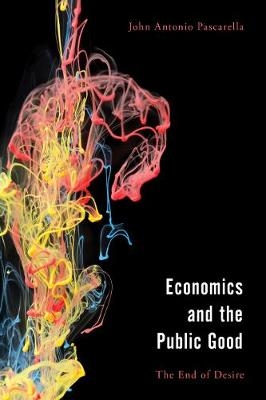
Economics and the Public Good
The End of Desire in Aristotle's Politics and Ethics
Seiten
2022
Rowman & Littlefield International (Verlag)
978-1-78660-843-7 (ISBN)
Rowman & Littlefield International (Verlag)
978-1-78660-843-7 (ISBN)
Careful interpretation of Aristotle’s political philosophy shows the necessity for politics and economics to be understood as working towards a goal unachievable by either agent on its own. This interpretation compel readers to contemplate how all human pursuits begin with desire and a choice about the good.
What is the relationship between politics and economics? Many of today’s most pressing political issues are economic in nature. Whether it is the question of the distribution of wealth in society or the extent to which international commerce should be encouraged, politics and economics are inextricably linked in contemporary political discourse. Regardless of the particular questions at stake in these debates, there is a fundamental moral question at their foundation that is often ignored: What is the good of politics and economics?
Though the different sides in debates about politics and economics often argue implicitly from the assumption that their approach is good, those engaging in the debate and their observers are surprisingly ill-equipped to engage the moral question itself. Aristotle’s political philosophy, however, takes on this moral question directly.
Through a careful inquiry into human nature and the many longings driving human beings – particularly for happiness and friendship – Aristotle shows the necessity for politics and economics to be understood in relation to a good that neither art can achieve on its own.
What is the relationship between politics and economics? Many of today’s most pressing political issues are economic in nature. Whether it is the question of the distribution of wealth in society or the extent to which international commerce should be encouraged, politics and economics are inextricably linked in contemporary political discourse. Regardless of the particular questions at stake in these debates, there is a fundamental moral question at their foundation that is often ignored: What is the good of politics and economics?
Though the different sides in debates about politics and economics often argue implicitly from the assumption that their approach is good, those engaging in the debate and their observers are surprisingly ill-equipped to engage the moral question itself. Aristotle’s political philosophy, however, takes on this moral question directly.
Through a careful inquiry into human nature and the many longings driving human beings – particularly for happiness and friendship – Aristotle shows the necessity for politics and economics to be understood in relation to a good that neither art can achieve on its own.
John Antonio Pascarella is assistant professor of political science at Utah State University and was previously the Postdoctoral Fellow in International Politics at Saint Vincent College.
Introduction: The Necessity for Aristotle’s Economic Teaching / 1. The Problem of Business in Aristotle’s Politics / 2. The Perplexing Character of Aristotle’s Political Philosophy / 3. The Problem of Happiness in the Nicomachean Ethics / 4. Economics and Self-Sufficiency / 5. Friendship, Economics, and the Good in Aristotle’s Political Philosophy / 6. Justice and Gain / 7. Justice and Community / Conclusion: The Inseparability of Aristotle’s Moral and Economic Teaching
| Erscheinungsdatum | 17.08.2020 |
|---|---|
| Reihe/Serie | Economy, Polity, and Society |
| Verlagsort | London |
| Sprache | englisch |
| Maße | 159 x 228 mm |
| Gewicht | 767 g |
| Themenwelt | Geisteswissenschaften ► Philosophie ► Ethik |
| Wirtschaft ► Allgemeines / Lexika | |
| Wirtschaft ► Volkswirtschaftslehre | |
| ISBN-10 | 1-78660-843-X / 178660843X |
| ISBN-13 | 978-1-78660-843-7 / 9781786608437 |
| Zustand | Neuware |
| Haben Sie eine Frage zum Produkt? |
Mehr entdecken
aus dem Bereich
aus dem Bereich
unsere kollektive Verantwortung
Buch | Hardcover (2023)
wbg Theiss in Wissenschaftliche Buchgesellschaft (WBG) (Verlag)
CHF 46,90


